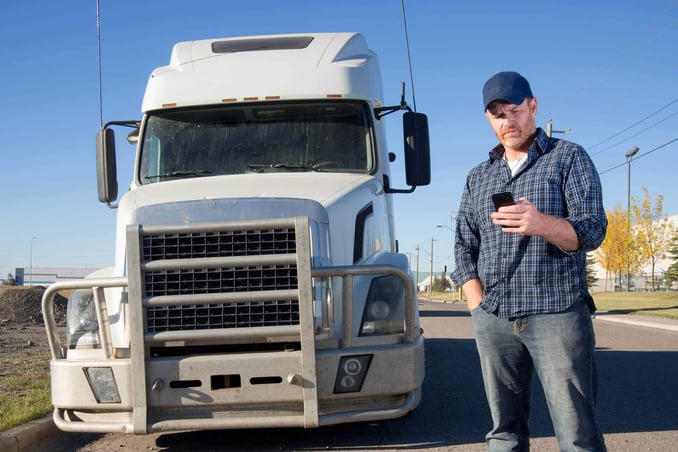Is Accident Reporting Your Achilles Heel?

There is a misguided belief by some motor carriers that delaying or failing to report claims to their insurers will work in their favor. On the contrary, it can have the opposite effect and cost a motor carrier more in the long run. Regardless of perceived fault, other parties involved in an incident have a legal right to assert a claim. For this reason, delaying or failing to notify your insurer of an incident can hinder its ability to proactively manage a claim and settle it in a fair and timely manner.
So, why the reluctance to report claims promptly? One reason could be that some motor carriers determine liability on their own and simply decide an incident does not warrant a claim, so they ignore it. Another reason is that management might fear a claims adjuster will contact the other party and create a claim that would otherwise not exist or, that their insurance premiums will increase even if no money is ever paid out.
Despite these reasons, it is important for motor carriers to understand that an insurance policy is a contract that obligates the insured to report claims to the insurer promptly. In exchange for the premium, the insurer is then obligated to investigate all claims and indemnify those covered under the policy. What constitutes a timely manner? Claims should be reported immediately, but no later than 24 hours of the incident. The reason for this timeframe is that the sooner the claims department is aware of an incident, the sooner it can respond. Any delay inhibits the adjuster’s ability to conduct an investigation and obtain evidence to defend your interests in a claim.
If timely accident reporting is an issue for your company, here are some ways to correct the problem.
Train EmployeeS On Accident Reporting Procedures
For drivers, dispatchers, driver managers, and safety personnel, accident reporting should be covered during onboarding and through annual refresher training. To support the company’s internal processes, Great West provides insureds with free accident reporting kits that make claim reporting easier. These kits should go inside every vehicle. Ensure drivers are trained properly on how to complete the form inside the kit, take appropriate photos at the crash scene, and report the incident to Great West’s Claim Reporting Hotline at 800.228.8040.
Hold Employees Accountable For Late Reporting
Motor carriers should have a written policy on accident and injury reporting. Failure to report either type of incident should have consequences since either could potentially turn into severe losses. Likewise, look for trends in late reporting by dispatchers and driver managers and factor any trend into performance reviews.
Appoint A Claims Handler
This person should know what a claim is or isn’t and be the point of contact for discussing potential claim situations. He or she should be responsible for reporting claims to the insurer and making sure the insurer’s claims adjuster has all of the information he or she needs to conduct an investigation. In workers’ compensation claims, this person could also handle return-to-work program administration.
Call to Action
-
Establish an accident-reporting policy and accompanying procedures.
-
Include accident reporting in the performance reviews of drivers and operations staff.
-
Appoint a company claims handler who is responsible for reporting and managing claims.
8 QUESTIONS TO ASK YOUR TRUCK INSURANCE AGENTWant to learn more? Download our white paper, Insurance is an Investment: |
Note: These lists are not intended to be all-inclusive.
The information in this article is provided as a courtesy of Great West Casualty Company and is part of the Value-Driven® Company program. Value-Driven Company was created to help educate and inform insureds so they can make better decisions, build a culture that values safety, and manage risk more effectively. To see what additional resources Great West Casualty Company can provide for its insureds, please contact your safety representative, or click below to find an agent.
© Great West Casualty Company 2019. The material in this publication is the property of Great West Casualty Company unless otherwise noted and may not be reproduced without its written consent by any person other than a current insured of Great West Casualty Company for business purposes. Insured should attribute use as follows: “© Great West Casualty Company 2019. Used with permission by Great West Casualty Company.”
This material is intended to be a broad overview of the subject matter and is provided for informational purposes only. Great West Casualty Company does not provide legal advice to its insureds, nor does it advise insureds on employment-related issues. Therefore, the subject matter is not intended to serve as legal or employment advice for any issue(s) that may arise in the operations of its insureds. Legal advice should always be sought from the insured’s legal counsel. Great West Casualty Company shall have neither liability nor responsibility to any person or entity with respect to any loss, action, or inaction alleged to be caused directly or indirectly as a result of the information contained herein.





